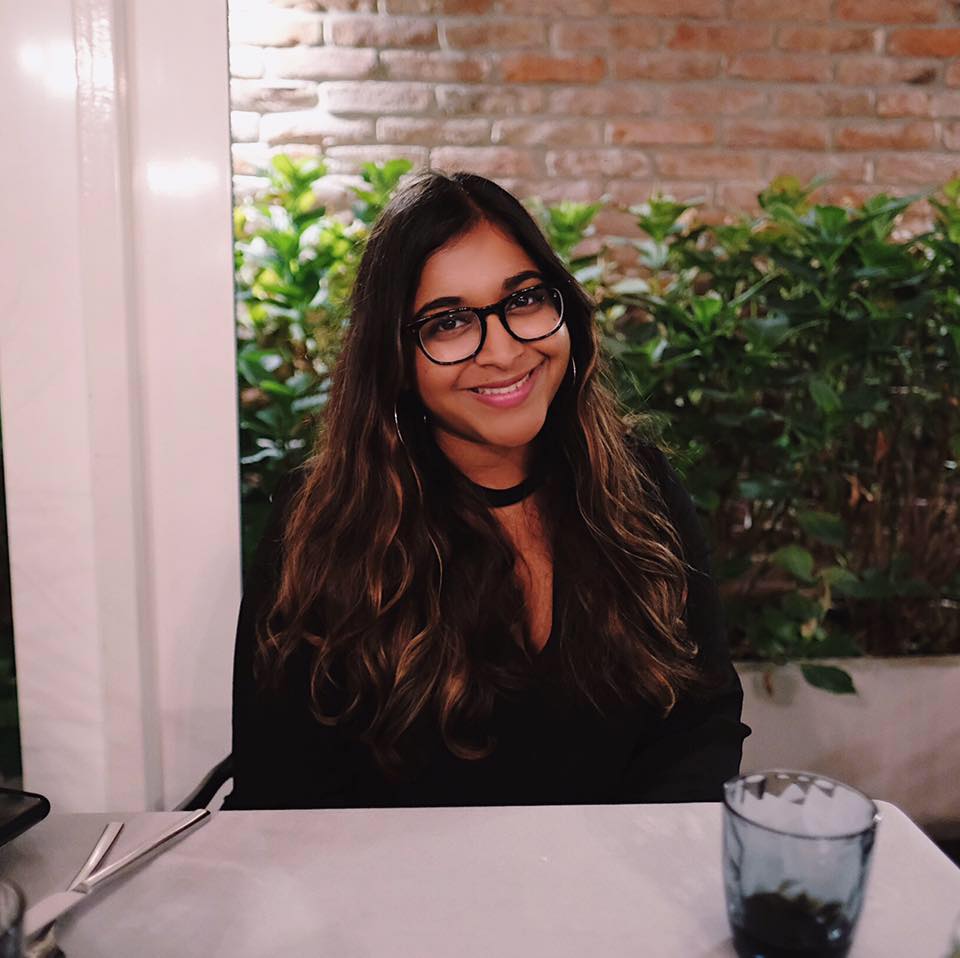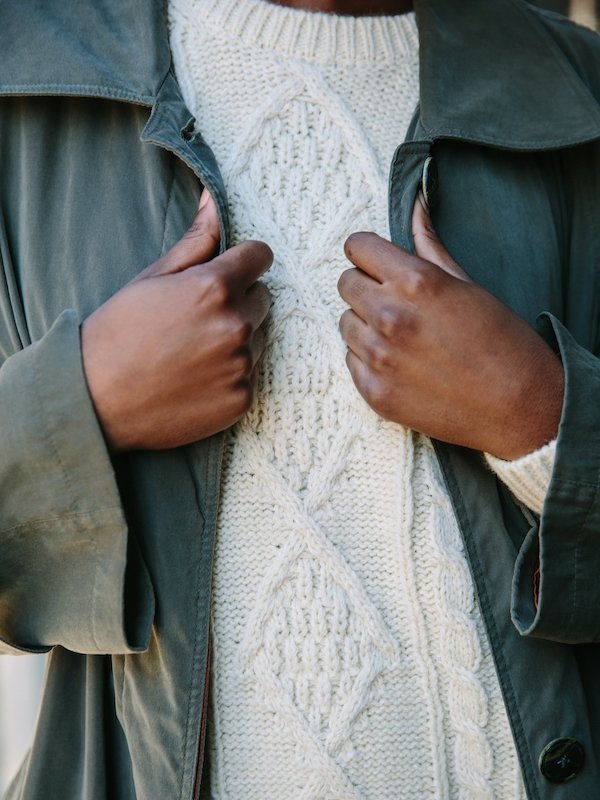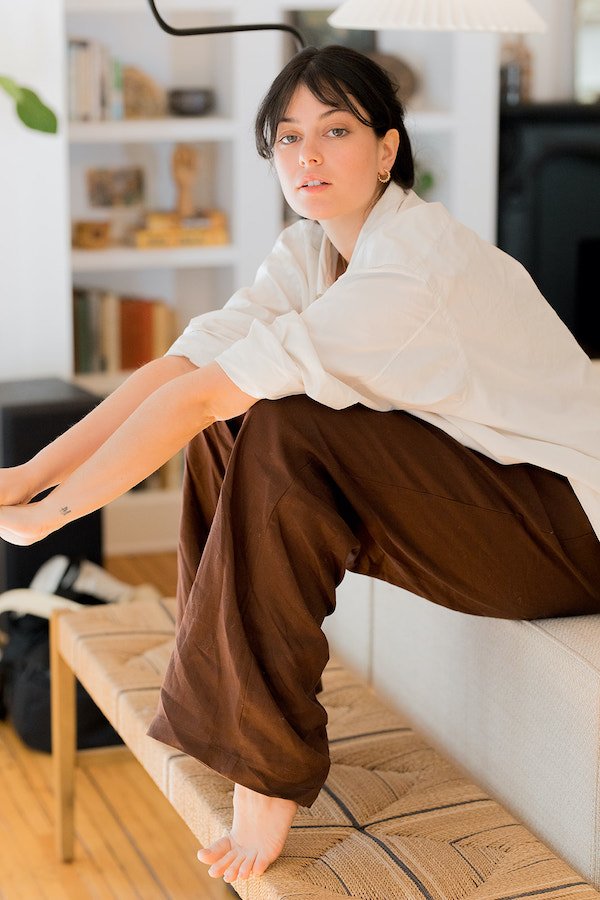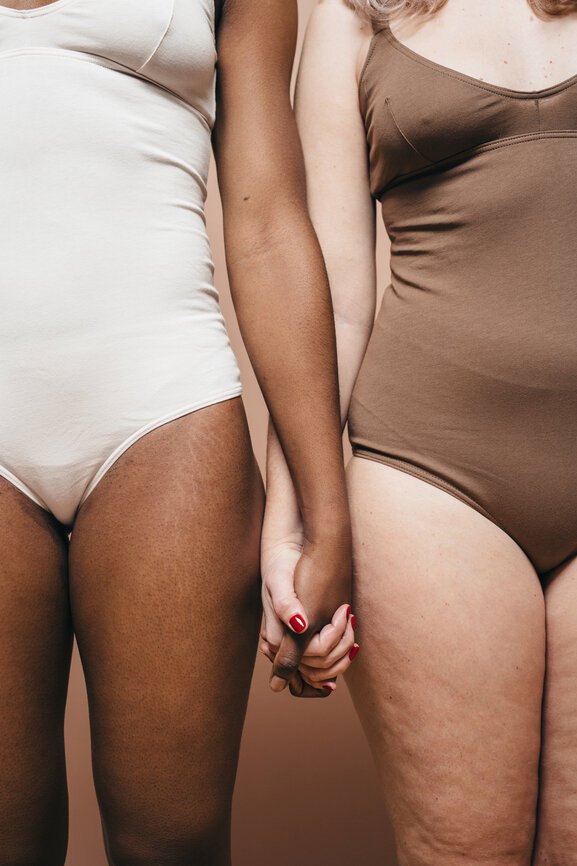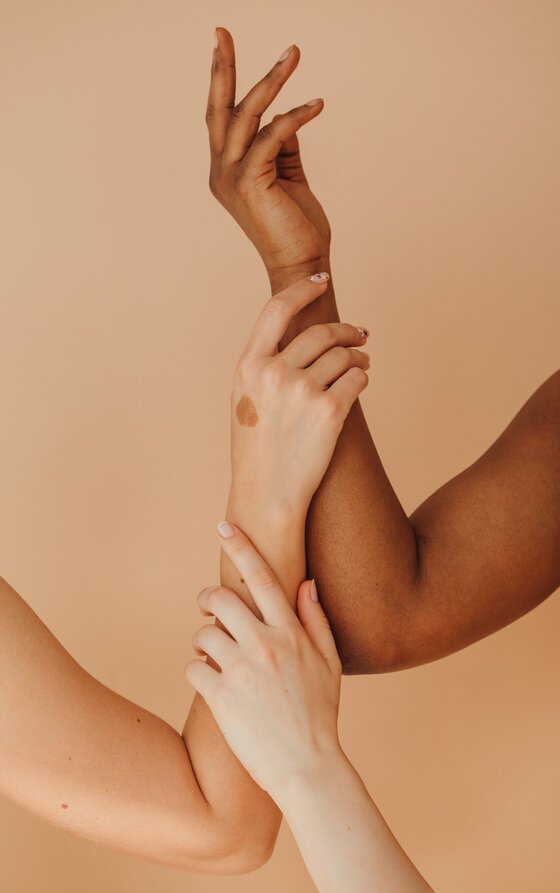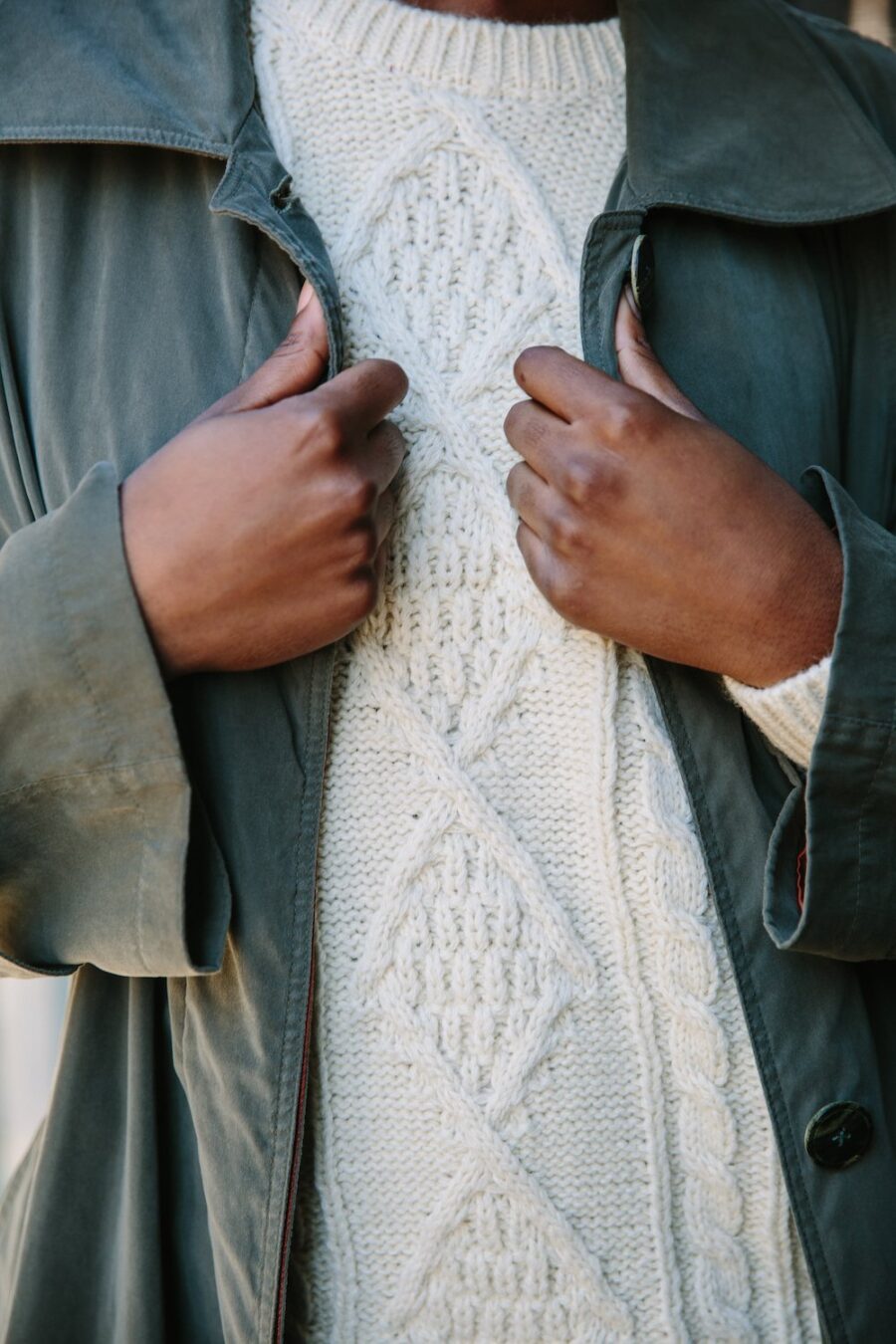
How I’m Setting Boundaries With Toxic Diet Culture
CW: This piece includes language and personal experiences around diet culture and eating disorders.
I remember the feeling of going to bed hungry.
A few years ago, I was at my thinnest, only ingesting 1200 calories (or less) a day. “Save the calories and go straight to bed,” I’d tell myself. “You won’t be hungry if you’re asleep.”
At first, the weight loss was unintentional, a byproduct of living at home post-college away from campus dining halls and bars. But as I got slimmer and slimmer, I heard countless compliments about how great I looked, which further fueled a desire to limit my caloric intake. Eventually, I got to a point where I’d skip breakfast, eat a SmartOnes microwave-ready meal for lunch at work with a banana or apple, and often, just have a bowl of soup for dinner.
“As I got slimmer, I heard countless compliments about how great I looked, which further fueled a desire to limit my caloric intake.”
No one asked me if I was dieting too much or exhibited concern about my health. However, any comprehensive medical exam would’ve flagged my dangerously high sodium levels from those processed foods or borderline eating disorder tendencies. Even my doctor—who had always tied any issue I had with my weight—was impressed with my weight loss. Her weight bias was fatphobic, but at the time, it felt like validation that these unhealthy habits were a good thing.
It didn’t help that the cultural conversation veered towards thinness, either. Who could forget the hellish quote, “Nothing tastes as good as skinny feels,” that became the crux of diet culture trends and fads in the 2010s? In that time, nearly 45% of girls 16-19 attempted to lose weight, and more than a third of college women who dieted “normally” became pathological dieters, at elevated risk for eating disorders. I clearly wasn’t alone in my experience, but not once did anyone share concern.
That’s partially because the media we’ve been fed over our lifetimes—particularly for women—has been inundated with thin, hairless bodies altered to look even thinner. We’ve been sold billions upon billions of dollars of weight loss products and magazine headlines about so-and-so’s weight gain and cellulite (which, by the way, weight fluctuations and cellulite are normal).
So it’s no surprise that by the age of three (three!), girls begin to express concerns about their weight or shape—not just because of Barbie’s unrealistic measurements but also by the negative body image messages they hear from those around them.
“We have to understand that thinness does not equate to health. We don’t need to participate in fat talk.”
Not only does this all reinforce the stigma that only thin bodies are worthy bodies, but it’s the result of a patriarchal, capitalist society that seeks to shrink women down, figuratively and literally.
How can we change the narrative? We have to actively opt out and understand that thinness does not equate to health. We don’t need to participate in fat talk, like flippant comments about “walking off calories,” and we don’t need to comment on how “great” someone looks if they’ve lost weight. This only reinforces the stigma, and we have the power to disengage with diet culture.
That said, changing our mindsets is far from easy, though we have made strides towards a more inclusive culture. Toxic diet narratives are so deeply woven in our society that it’s taken me years, a therapist, and the support of my best friend to ultimately move to a body-neutral headspace, far from my regimented calorie-counting days.
Over the last few years, that support system has helped me recognize negative self-talk when it happens, and I’ve learned to replace the thought with either a neutral fact or a moment of self-compassion. For example, a neutral fact could be, “The foods I put in my body, whether greens, carbs, or desserts, are not need for punishment or restriction.” Or for some self compassion, I’ll remind myself, “My body may change but my worth does not.”
“I’ll remind myself, ‘My body may change but my worth does not.’”
Most of all, I’ve learned to not focus as much on my outward appearance but rather on my intrinsic value and what my body can do for me, whatever weight or shape I am.
As my colleague and friend Alyssa brilliantly puts it, “Our bodies are a vessel to move us through life, not a project to constantly work on.” This body-neutral perspective alone has given me more self-compassion than ever before.
Unfortunately, the new relationship I have with my body hasn’t always extended to those around me, and folks have provided plenty of unsolicited feedback. I’m still met with comments from relatives asking if I’ve “been tested for medical conditions” to account for weight gain. Then there are the friends—who’ve never asked before—encouraging me to join their workouts with underlying tones of judgment.
This reversal—where I’m heavier yet healthier than ever—is a personal reminder that the dichotomy of “thinness equals health” is both false and dangerous. This has been the catalyst for me to set boundaries with toxic diet culture.
The first boundary I’ve set is with my family. As a child, my Indian relatives used to call me “jaadi masi” growing up, which loosely translates to “fat auntie.” While South Asians will say that this nickname is only meant to tease, I am calling it out for what it is: Engrained fatphobia.
“I gently follow up and explain that negative self-talk isn’t necessary, and we all deserve to be kinder to ourselves.”
I’ve specifically asked my parents not to comment on my weight, whether it goes up or down, and to refrain from sharing family members’ “concerns” with me. Out of all the boundaries I’ve set, this has taken the most time to set in, but I am finally in a place where I don’t have to hear “feedback” every time I go home.
Another boundary I’ve set is around friends and peers. Whenever I hear a toxic comment about someone else or me, I gently follow up and explain that negative self-talk isn’t necessary, and we all deserve to be kinder to ourselves. After all, our bodies have gotten us through a pandemic—and other feats too, whether it’s recovering from broken bones or giving birth. We don’t need to reinforce the idea that only thin bodies are the right bodies, despite what we grew up hearing.
I’ve also worked to be proactive with my loved ones rather than reactive after potentially hearing something harmful. For example, my wedding is coming up in a few months, which means my bridal party is picking out their dresses. Having gone through the experience myself, I know that self-criticisms around weight and fit are bound to pop up.
I’ve messaged everyone in the group: “It’s really important to me that we keep this a body-neutral or body-positive space. I don’t want to ascribe to the ‘wedding diet’ or weight loss/calorie-deficit narrative that often comes up in wedding-related conversations. It’s something I ask everyone to be conscious of and the ways we speak to—and about—ourselves.” This boundary has been met with generally positive feedback, and it’s kept the experience an affirming one.
“The most important boundary, though, is the one I’ve set with myself.”
The most important boundary, though, is the one I’ve set with myself. I no longer follow social media accounts that reinforce toxic diet culture and instead I go out of my way to find body-neutral perspectives, like anti-diet dietician Dr. Laura Iu. I no longer support brands that feature size-exclusive imagery and instead opt to spend my money with inclusive businesses that understand all bodies are valid. (A reminder to brands: XS-XL ranges are not size-inclusive!)
Most of all, I no longer internalize comments about my looks, or adhere to the idea that we must suck in our stomachs or stick out our arms in photos, or that we need to work off a sweet treat. I take these moments with a grain of salt (we love a food pun in an anti-diet piece) and instead focus on my own self-love and confidence. In fact, I don’t know my exact weight anymore because I don’t keep scales around. This boundary helps me recognize my body for what it is: a body, one that will change over its lifetime.
I deserve to take up space in the world, no matter my size. I am worthy of love, kindness, and a future where we accept one another and ourselves—we all are.
Henah Velez (she/her) is an Editor at The Good Trade. She holds a Master’s in Social Entrepreneurship and is a proud Rutgers grad. Originally from NJ, Henah’s now in Santa Barbara, CA, where she loves shopping small, hanging with her pets, or traveling. Say hi on Instagram!
